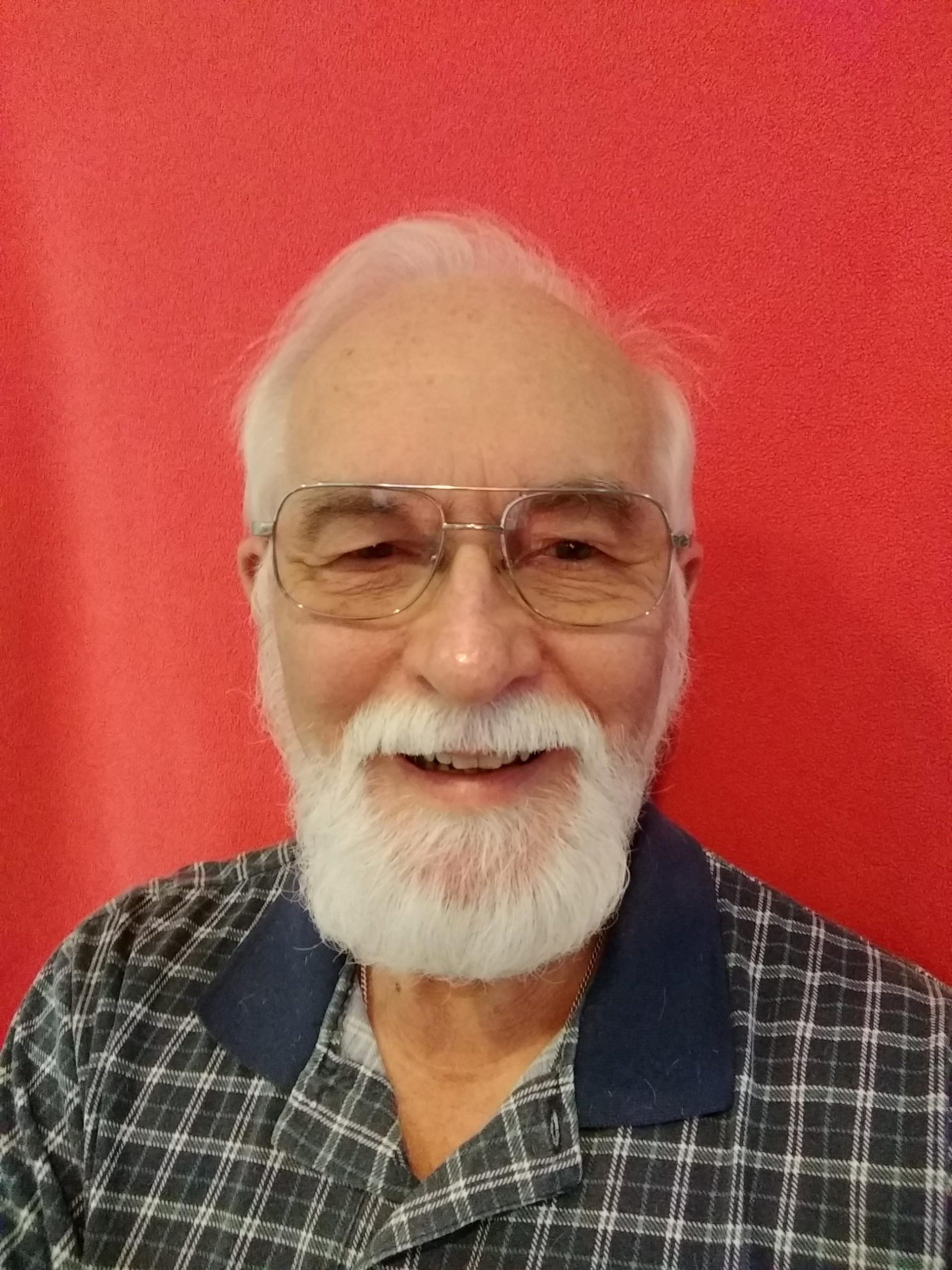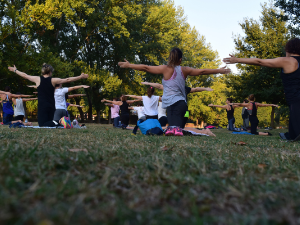 Don Roberts has been the RCIA Team Leader for the Parish Community of St. Joseph in Belmont, NH, since 2012. In the 1980s, he and his late wife Pat introduced the process to their suburban Albany, NY, parish. After a 15-year stay in Virginia, they returned to RCIA in their retirement in New Hampshire. Don earned an M.A. in Sacred Theology from Catholic U.
Don Roberts has been the RCIA Team Leader for the Parish Community of St. Joseph in Belmont, NH, since 2012. In the 1980s, he and his late wife Pat introduced the process to their suburban Albany, NY, parish. After a 15-year stay in Virginia, they returned to RCIA in their retirement in New Hampshire. Don earned an M.A. in Sacred Theology from Catholic U.
Does your parish have a year-round RCIA process? Do you have a story you’d like to share? If so, please send about 1,000 words to Nick Wagner, nick@teaminitiation.com.
 Do you recall the incident in the Bible when someone approached one of the disciples, asking, “When can I hear more about the “Good News” that Jesus is preaching?” And the disciple replied, “Well, Jesus is spending the summer fishing at the Sea of Galilee with Peter, Andrew, and Zebedee’s sons, but he should resume teaching classes after the Rosh Hashanah-Yom Kippur Holy Days. Could you come back then?”
Do you recall the incident in the Bible when someone approached one of the disciples, asking, “When can I hear more about the “Good News” that Jesus is preaching?” And the disciple replied, “Well, Jesus is spending the summer fishing at the Sea of Galilee with Peter, Andrew, and Zebedee’s sons, but he should resume teaching classes after the Rosh Hashanah-Yom Kippur Holy Days. Could you come back then?”
Or when Philip the deacon discussed with an Ethiopian official how Isaiah’s prophecies related to Jesus, and when they stopped by some water, the Ethiopian asked, “Look, there is water. What is there to prevent my being baptized?” And Philip said, “Well, we meet on Tuesday nights at the synagogue — can you make it then?” And when the Ethiopian said his only free night was Thursday, Philip replied, “That’s too bad. Maybe when we start another group in the fall, your schedule will be different, or perhaps we’ll meet on Thursdays if some of the leaders are available and there’s a room free.”
No, you most likely don’t recall these stories, because I crafted them to make a point—the early Christians didn’t hold classes or take summer vacations or make it hard to find a time to learn about Jesus. They were filled with enthusiasm for “The Way” and eager to share the “Good News” of salvation with anyone who was interested. Why do we want to do it differently?
The RCIA is a process of coming to know Jesus
For me, year-round RCIA means two things:
- We offer faith-sharing sessions all year long, without long “vacation” breaks. Sure, we may skip a session now and then (Thanksgiving, Christmas, Easter, a big snowstorm), but we generally meet on a regular basis.
- We welcome inquirers into the process whenever they show interest. If the Spirit has moved them to approach us, it should move us to welcome them.
RCIA isn’t about classes or a curriculum. It isn’t primarily learning about Catholicism or Christianity or even about Jesus. It’s a process of coming to know Jesus, building a relationship with him, and through him, with the Triune God. There’s no written test to become a Christian any more than there’s such a test to get married. It’s not what you know, it’s who you know. You fall in love with a person who means the world to you and to whom you can commit yourself for the rest of your life—in this case, your eternal life!
Our RCIA team members are committed to sharing their faith, walking with those whose journey has brought them to our faith community and who may—or may not—become members of that community as their journey progresses. And we continue walking with them during their first year as new members.
How flexible do we have to be to have a year-round RCIA?
What does it take to have a year-round RCIA process? I think the main requirement is flexibility. It’s not always easy, but it is possible.
If we already have sessions going with one or more inquirers and a new inquirer comes, a couple of team members will meet separately with the new person, rotating among the team as needed, until we’re ready to have the newcomer join the ongoing sessions. We have no agenda or timeframe for each person’s inquiry period. It’s their time to ask whatever questions or issues they want to raise and it continues until a person wants to leave or to progress to the next stage of the process. We’re flexible.
For an unbaptized inquirer, the next stage is becoming a catechumen through the Rite of Acceptance, then spending at least a full year in the catechumenate before celebrating the sacraments of initiation at the Easter Vigil. During this period, our sessions focus on the Sunday scriptures, with additional discussion about the liturgical seasons and major feasts as they occur. We’re flexible.
For a baptized person, proceeding beyond an inquiry period means covering whatever basics remain after their sessions to date, so that they’re ready to be received into full communion, usually at a Sunday Mass. It depends on their level of catechesis before and during their initial period. Those who had little prior catechesis will usually spend a longer time in this stage, while those who arrived with a strong relationship with Jesus may need only a few sessions to prepare for reception and confirmation. We’re flexible.
Are your team members ready to be flexible?
Several years ago, our bishop issued RCIA guidelines for the diocese (Manchester, NH) that set a minimum of one year for the catechumenate period, followed by a one-year mystagogia after baptism. Reception into full communion for catechized candidates should occur at Sunday Mass, not the Easter Vigil, and they’re not part of the Rite of Election. We provide to each group—catechumens and candidates—the celebrations that are proper to their status in the Christian community, respectful of those already baptized, and not trying to “keep everyone together” because it’s easier. We’re flexible.
In some ways, the fact that we’re in a less populous, semi-rural community makes our RCIA ministry easier. We don’t get a large number of inquirers—some years, none. A few years ago, having no one at any stage of the process, we spent most of a year in team development, studying and discussing each stage of the process, with a focus on how we can do this in our community. And as we were wrapping that up, the Spirit sent us an inquirer who became a stunning catechumen, truly alive in his developing faith.
A strong RCIA team is key to a successful process in a parish. Members must be ready and able to assume responsibility for faith-sharing sessions, to split into subsets working with different groups (catechumens, candidates, new inquirers), rotating among groups so they get to know everyone in the process, shuffling schedules to accommodate participants, etc. Each team member needs to be flexible.
Growing an RCIA process, not a program
I first transitioned to a year-round RCIA in the late 1980s, when I was in another diocese and RCIA was relatively new for all of us. Doing it 30 years later in my current parish reinforced my appreciation of its value. Once you implement a year-round RCIA, once you truly have a process, not a program, once you toss the curriculum and let the Spirit move you along with the participants, you’ll see how fulfilling RCIA can be and wonder why it took you so long.
Don’t ask, “Can we do this?” Rather, ask, “HOW can we do this? What must we do to welcome inquirers whenever they come to our faith community? What will we do to accommodate newcomers while still advancing the faith development of those already in the process?” And after your plans are all set, remember to be flexible!
Your Turn
Has your parish RCIA been able to flexibly welcome new seekers? How are you fostering a process that meets seekers where they are? Share your thoughts in the comments below.







